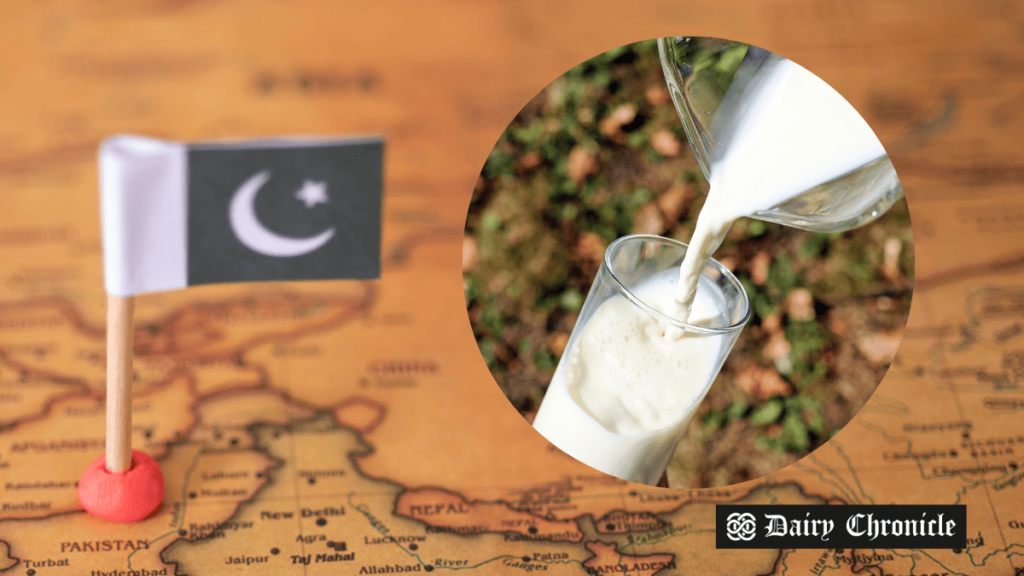The 18% General Sales Tax (GST) on packaged milk in Pakistan is making this essential commodity unaffordable for low- and middle-income households. The Pakistan Dairy Association (PDA), representing the formal dairy sector, warns of a significant decline in sales, with 500 milk collection centers shutting down, affecting 35% of dairy farmers. Industry experts are urging policymakers to reduce the GST to 5% to restore affordability, combat malnutrition, and support the dairy sector.
The recent imposition of an 18% General Sales Tax (GST) on packaged milk in Pakistan has raised serious concerns over affordability, food security, and the well-being of millions of households. The Pakistan Dairy Association (PDA), an industry body representing the formal dairy sector, warns that the tax is not only burdening consumers but also pushing dairy businesses toward financial instability. The dairy sector, which ensures the supply of hygienic and quality-controlled milk, is now experiencing a significant decline in sales, affecting farmers and the wider economy.
Impact on Households and Malnutrition
Milk is a fundamental source of nutrition, particularly for children, women, and the elderly. The United Nations International Children’s Emergency Fund (UNICEF) Pakistan states that 40% of children under five suffer from stunted growth, while over 54% of women and girls are anaemic due to iron deficiencies. The increased price of milk, driven by the GST, threatens to worsen malnutrition rates in the country.
With the 18% GST in effect, the price of packaged milk has surged to nearly PKR 350 ($1.25) per liter, making it unaffordable for low- and middle-income families. According to the PDA, 64% of packaged milk consumers earn below PKR 50,000 ($178) per month, making this price increase unsustainable for a vast majority of Pakistanis.
The Struggle of the Formal Dairy Sector
The formal dairy sector, which operates under strict hygiene and safety regulations, is facing a 20% decline in sales due to rising costs. Industry experts reveal that 500 milk collection centers have already shut down, impacting 35% of dairy farmers. Many farmers are now shifting to selling raw, unpasteurized milk at a loss of PKR 10-15 per liter, further disrupting the sector’s stability.
While the informal dairy sector continues to thrive without regulatory oversight, the formal sector bears the taxation burden, discouraging investment and long-term sustainability. The PDA has repeatedly urged policymakers to address this imbalance and support the regulated milk industry.
Pakistan’s Tax Rate Compared to Global Standards
According to the Federation of Pakistan Chambers of Commerce & Industry (FPCCI), Pakistan’s 18% tax on packaged milk is among the highest in the world. By comparison:
- The United States, Canada, Australia, Bangladesh, and the UAE impose no tax on milk.
- Sri Lanka applies an 8% value-added tax (VAT) on dairy products.
- The United Kingdom and Germany have lower VAT rates at 9% and 7%, respectively.
This excessive taxation on a necessity like milk creates financial hardship for families and threatens food security, making Pakistan an outlier in global dairy policies.
Call for Policy Reforms
Industry leaders, including the Pakistan Dairy Association, are calling on the government to reduce the GST on packaged milk from 18% to 5%. Such a revision would:
- Make milk affordable again for millions of families.
- Encourage the consumption of safe, hygienic milk, reducing reliance on unregulated alternatives.
- Stabilize the formal dairy industry and prevent further shutdowns of milk collection centers.
- Align Pakistan’s taxation policies with global best practices.
Experts emphasize that milk is not a luxury—it is a basic necessity and a critical component of nutrition. Ensuring its affordability should be a priority for policymakers to address malnutrition and support public health.
With the economic challenges Pakistan faces, a tax cut on milk would not only provide relief to struggling families but also demonstrate a commitment to public health and economic stability in the dairy sector. If Pakistan is to combat malnutrition and food insecurity, revising the tax structure on packaged milk must be a top priority.



